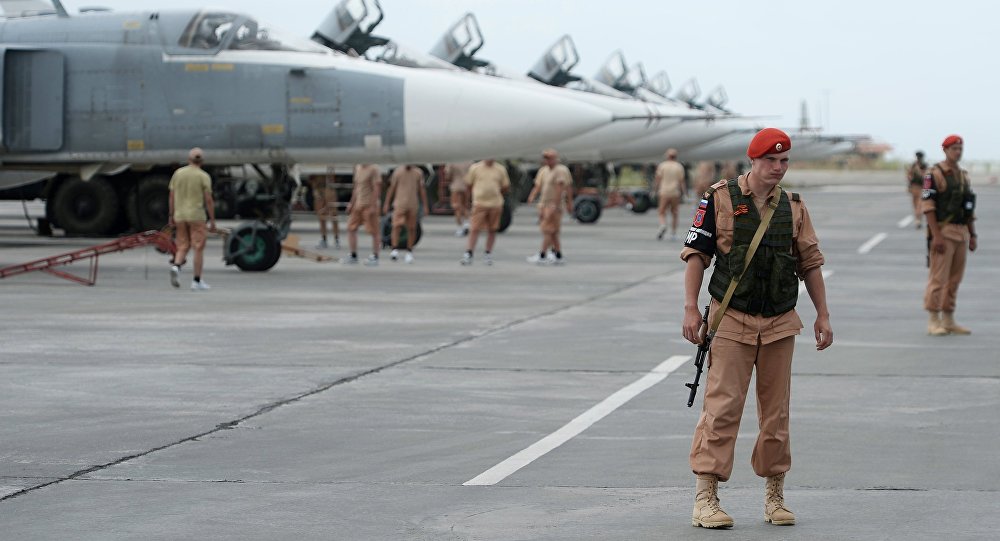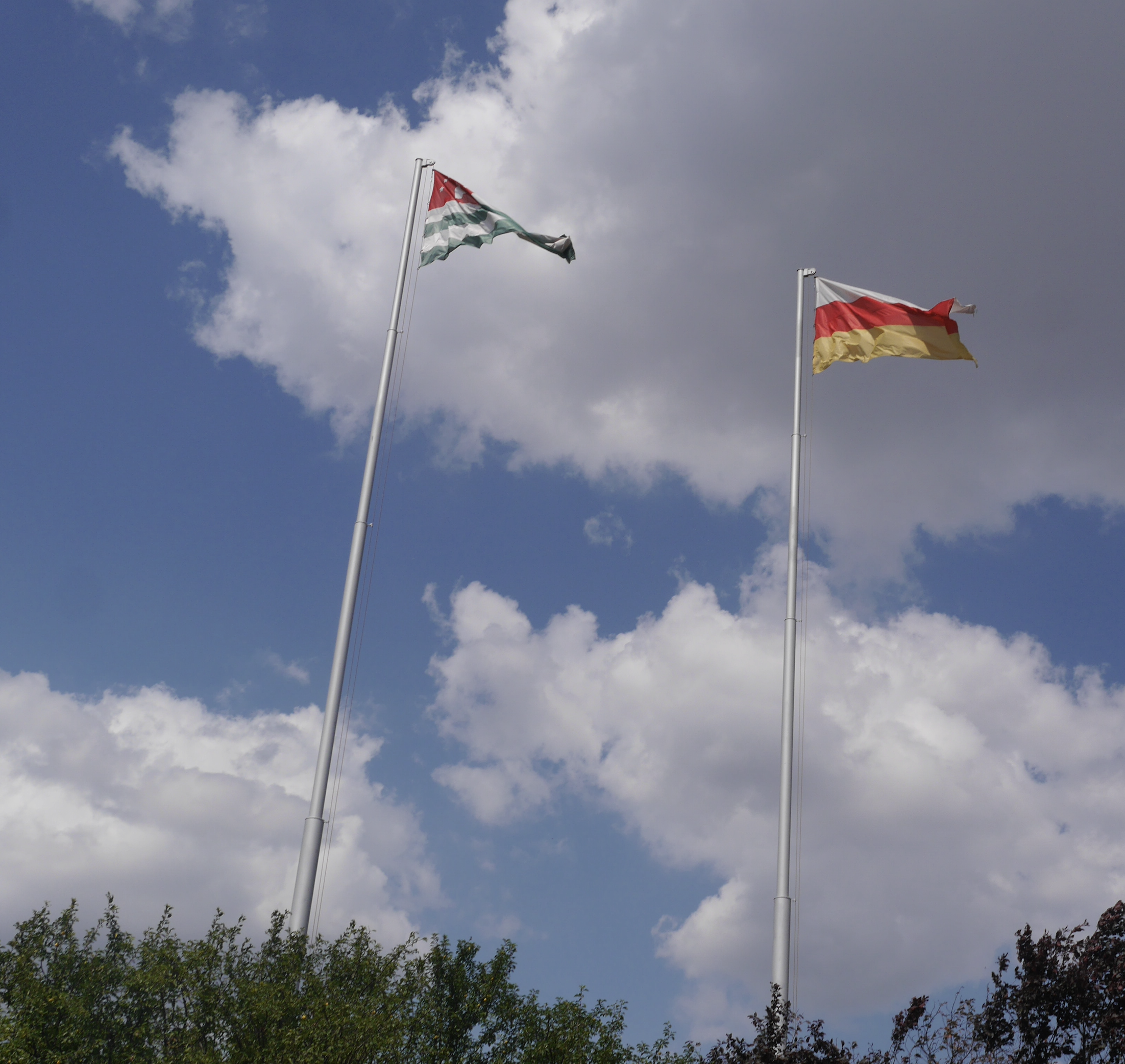
Russia in Syria: Life After the Islamic State
Russia in Syria: Life After the Islamic State
The fall of the main Islamic State (IS) strongholds in Syria challenges Moscow to become more focused on the political process of conflict settlement. Nevertheless, recent diplomatic moves made by Moscow appear rather muddled at first glance. On the one hand, Russian President Vladimir Putin and his United States counterpart, Donald Trump, made a joint statement at the Asia-Pacific Economic Cooperation (APEC) summit in Đà Nẵng, Vientam, on November 11 (see EDM, November 6, 9), declaring that the Syrian conflict can have only a political solution. Moreover, the two leaders confirmed their countries’ support for the Geneva process as well as to the principles of the United Nations Security Council Resolution 2254 (Gazeta.ru, November 11). On the other hand, several days later, Russian Minister of Foreign Affairs Sergey Lavrov openly accused the UN of being insufficiently active in the settlement of the Syrian conflict and argued that Russia, with the assistance of regional players Iran and Turkey, should help encourage the process of political reconciliation (Rossiyskaya Gazeta, November 17). This inconsistency calls into question Russia’s true interest in preserving the Geneva process. Indeed, some political analysts have suggested that the Kremlin is seeking to undermine the importance of the Geneva talks and replace them with the Astana process (see EDM, February 15, March 20, May 4) mainly controlled by regional and relatively pro-Moscow players (Alarabi, November 14; The Straits Times, November 18).
Yet, upon closer examination, Russian diplomacy over this past month is much more logical and consistent than might initially seem. First of all, Moscow seems to understand the importance of the current moment. The active military phase of the Syrian conflict is nearly over, and it is high time to start building up a new Syria from the remnants of the old country. The Kremlin evidently believes that if it wants to maintain its presence in post-conflict Syria, it needs to lead this process. However, the Geneva talks are not a useful format in this regard: too many forces are involved for Moscow to be able to achieve immediate consent on all existing issues, and it is too difficult to control/influence all of them. Instead, Geneva could be an appropriate final phase of the political process, where the constitution and form of governance of a new Syria are to be adopted. However, before discussing global issues, it is important to continue establishing regional ceasefires and building up local life where the opposing sides could coexist. This can only be achieved through the chain of negotiations between different forces on the ground, which, in turn, increases the importance of the Astana talks.
Consequently, Moscow is currently focusing its diplomatic efforts on interacting with those countries that have influence over developments on the ground in Syria, such as Iran, Turkey and Saudi Arabia. Thus, during Saudi King Salman bin Abdulaziz Al Saud’s trip to Moscow in October 2017 (see EDM, October 23), Russia encouraged the Kingdom to proceed with the creation of a united opposition group to represent the anti–Bashar al-Assad forces at the next Geneva meeting (Le Figaro, October 29). A meeting of this group took place in Riyadh, in late November (Riafan.ru, November 23). At the same time, the Kremlin has intensified its consultations with Tehran and Ankara to discuss the situation around Afrin and Idlib as well as the future of the de-escalations zones and Syrian conflict settlement. Moscow is also working to allay Iranian and Turkish concerns regarding Russia keeping its obligations to its partners. Putin’s meeting with Trump and frequent meetings between Russian and Israeli officials (see EDM, October 17, 19) created certain concerns in Tehran that Russia may be willing to abandon Iran in Syria. Therefore, on November 14, Lavrov made a statement underscoring the legitimacy of Iran’s military presence in Syria, thus sending the signal to Tehran that Russo-Iranian cooperation is no less important for Moscow than Russia’s relationship with Israel (NewsRu, November 14). Russia also put on hold preparations for a Syrian national dialogue congress, which was meant to increase the importance of the semi-official Syrian opposition, incorporate the Kurds into it and, thus, to strengthen the pro-Moscow opposition groupings in the Geneva talks. Yet, to allay Turkish concerns regarding the participation of Kurdish parties as independent forces in the congress, the meeting was postponed to negotiate all details with Ankara (see EDM, November 6).
As for the West, neither Europeans nor the US are viewed by Moscow as particularly pivotal at the current stage when it comes to negotiating a final outcome in Syria. For Russian strategists, the West either has demonstrated insufficient interest in becoming deeply involvement in Syrian affairs, or Western governments are seen as having little influence on the ground in Syria. During Putin’s meeting with Trump in Vietnam, Russia received all that it needed from the United States: guarantees that Washington recognizes Bashar al-Assad as the Syrian president, that the US will stick to the principle of territorial integrity vis-à-vis Syria, and that the US will respect the principle of de-confliction and continue to support the Geneva process. In exchange, Putin played along with Trump, who sees the struggle against terrorism in the region as his top priority. In their joint statement, Russia confirmed its willingness to fight the Islamic State until a final victory could be achieved together with the US (Gazeta.ru, November 11).
All in all, Russia may be interested in talking to the United States about the future of Syria beyond those issues discussed in Vietnam only when it sees increased US involvement in intra-Syrian affairs. To a certain extent, the statement by the US government on its decision to stay in Syria until the end of the Geneva process and to create an alternative local government in the territories controlled by the opposition Syrian Democratic Forces might be an attempt by Washington to increase its importance as a player in Syria (Vesti, November 23). Yet, it remains to be seen how successful this attempt will be.


